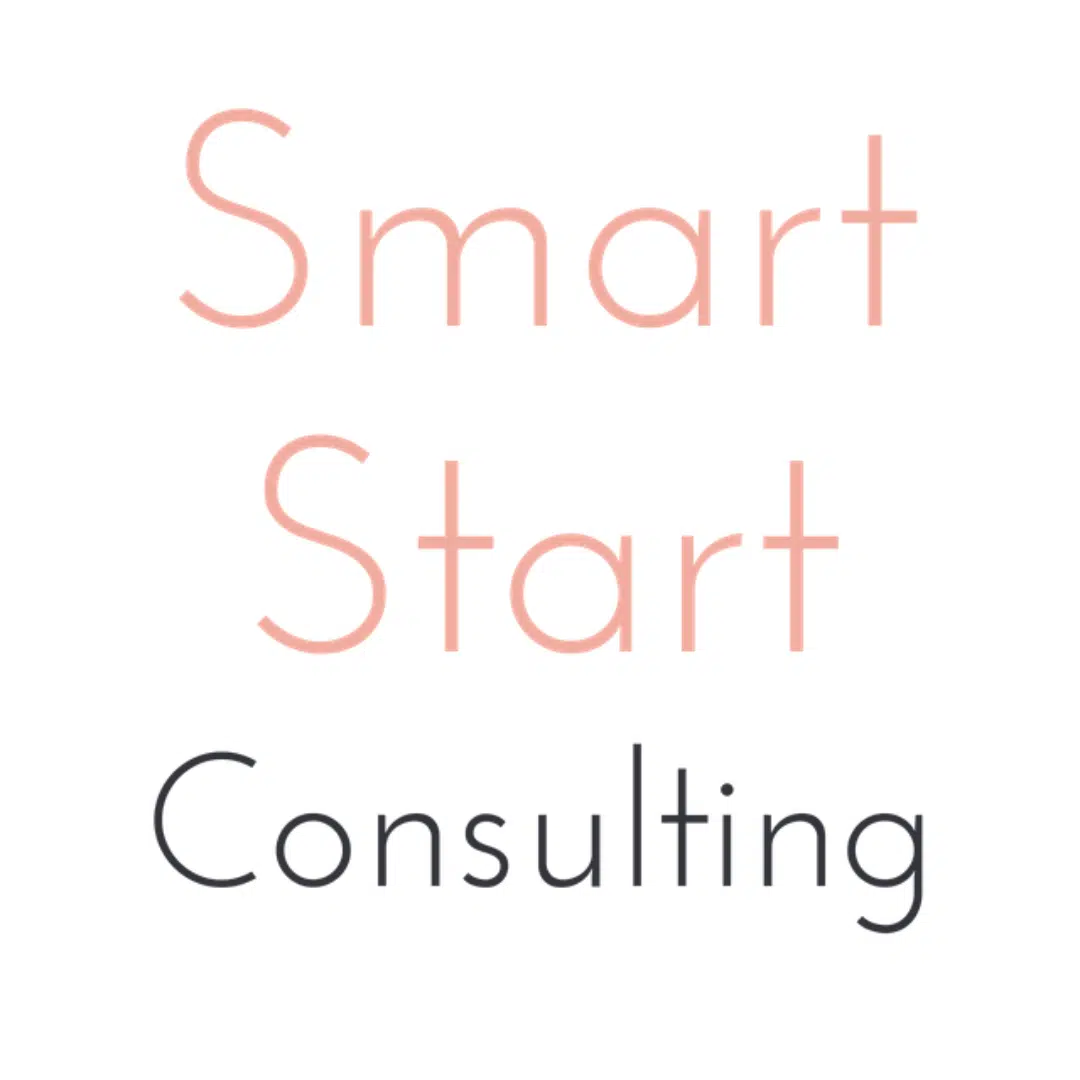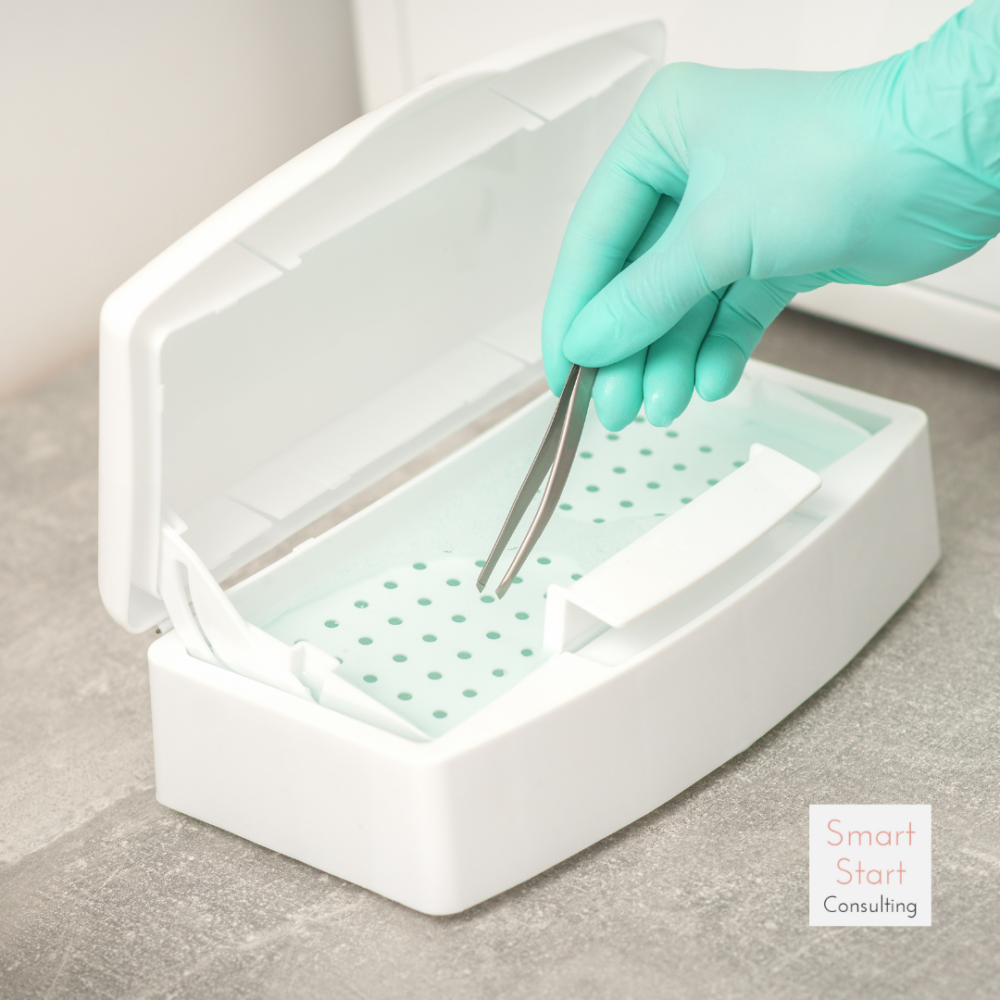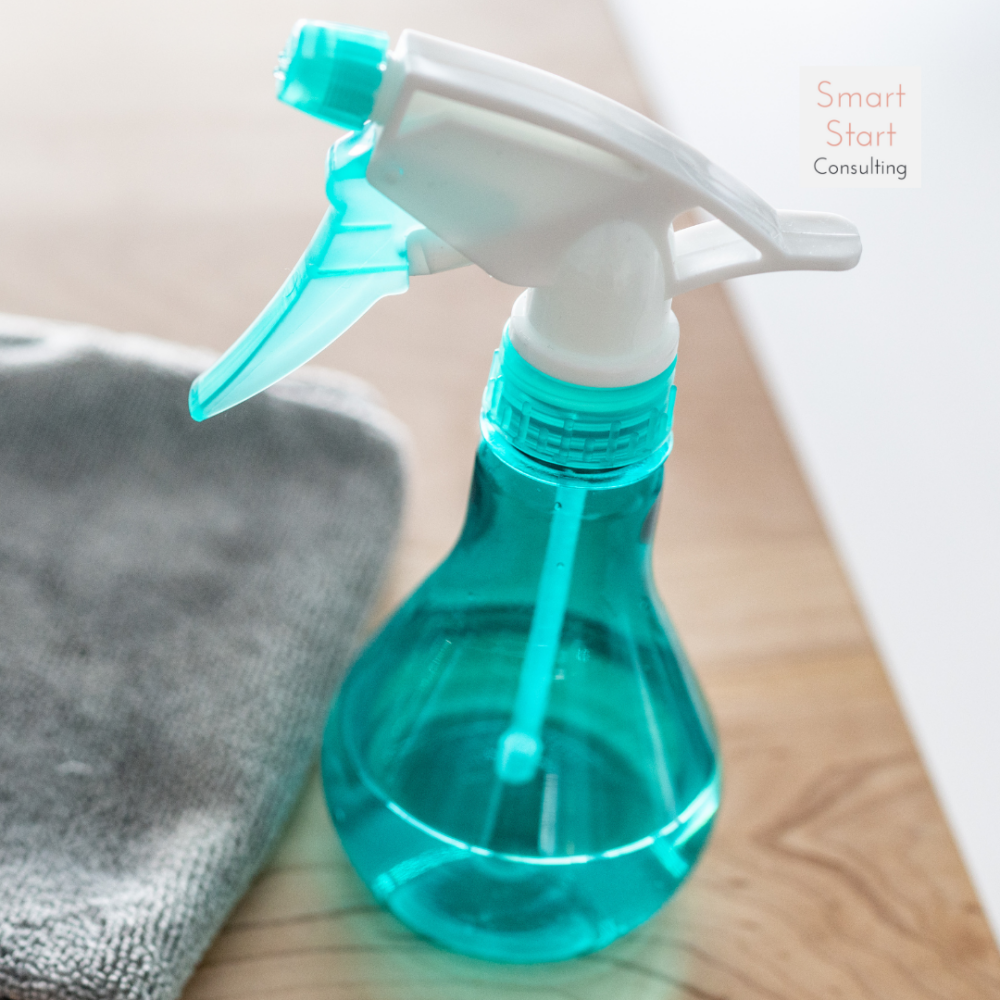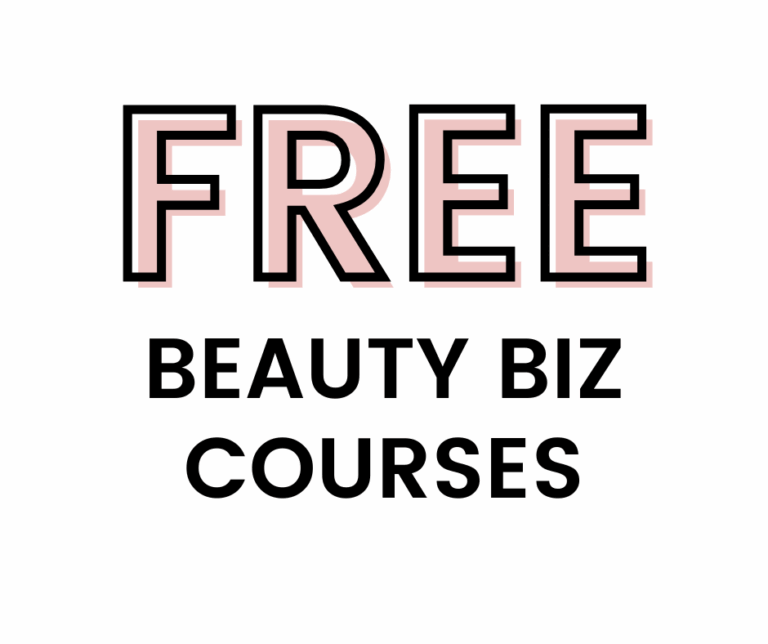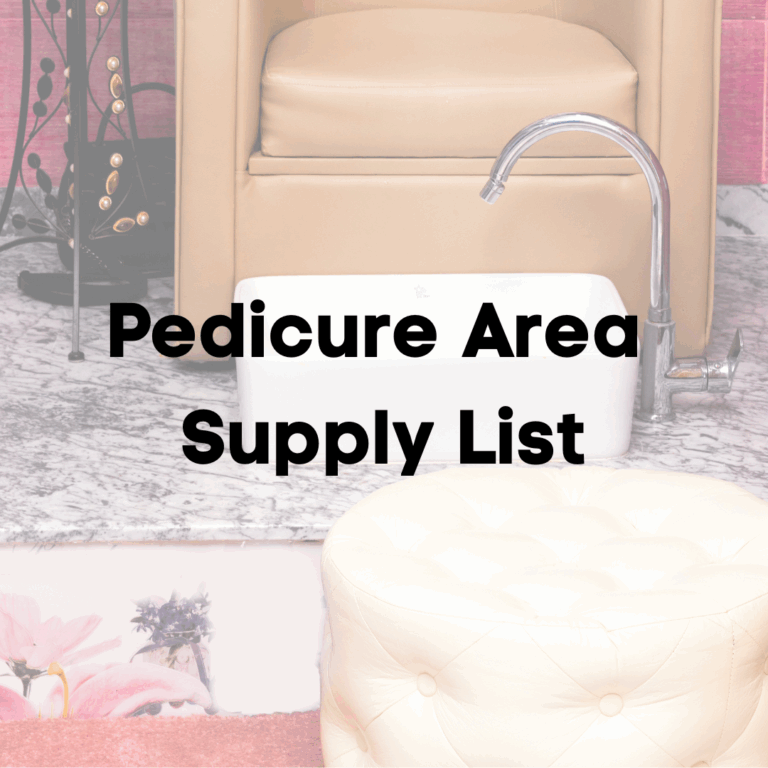Navigating Health & Sanitation in Saskatchewan Salons and Spas
If you’re running a salon or spa in Saskatchewan, you’re aware of the importance of health and sanitation to your success and client safety. But let’s face it, sometimes the rules can feel like a maze – a bit vague and hard to navigate.
That’s why I’ve put together this resource-packed guide to help you stay on top of your cleaning, sanitation, and disinfection game!
Common Terminology:
- Sanitization: The process of cleaning and reducing the number of germs and bacteria to a safe level. This is usually done with soap and water or a sanitizing solution.
- Disinfection: The process of using chemicals to kill most germs and bacteria on surfaces. This is more powerful than sanitization and is crucial for preventing the spread of infections in salons and spas.
- Sterilization: A method that completely destroys all forms of microbial life, including bacteria, viruses, and fungi. This is often achieved through high-pressure steam, heat, or chemical processes.
- Cross-contamination: The transfer of harmful bacteria or substances from one person, object, or place to another. Preventing this is key in a salon or spa setting.
- Personal Protective Equipment (PPE): Special clothing or equipment worn for protection against health and safety risks. This includes gloves, masks, and eye protection.
- Pathogens: Microorganisms that can cause disease. In a salon or spa, these could be bacteria, viruses, or fungi.
- Antiseptic: A substance that stops or slows down the growth of germs. It is used on the skin to prevent infection.
- Bactericide: A substance that kills bacteria. This is important in disinfectants used in salons and spas.
- Fungicide: A chemical that kills fungi. This is especially important in preventing nail and foot infections.
- Virus: A tiny infectious agent that can only replicate inside the living cells of an organism. Understanding viruses is crucial in preventing the spread of viral infections.
- Biohazard: Any biological risk to humans or the environment. In a salon, this could include used needles or contaminated waste.
- Infection Control: The practices used to prevent the spread of disease and infections, especially in a professional setting like a salon or spa.
- Quaternary Ammonium Compounds (Quats): Disinfectants used in many sanitizing solutions. They are effective against most bacteria, viruses, and fungi.
- Autoclave: A device used to sterilize equipment and supplies by subjecting them to high-pressure saturated steam. Commonly used for metal tools in salons and spas.
- Hepatitis: A disease caused by viruses that affects the liver. Awareness is important as it can be transmitted through contaminated tools.
- Material Safety Data Sheet (MSDS): Documents that provide information on the properties of hazardous chemicals, including how to use them safely in the workplace.
Resources:
Saskatchewan Specific:
Other Sanitation Resources:
For the most current information on health, safety, and sanitation in the beauty industry, both in Canada and the United States, I recommend the following websites and search strategies:
Websites for Canadian PBeauty Industry Professionals:
Health Canada: www.canada.ca/en/health-canada
Focuses on health standards and regulations in Canada.
Canadian Centre for Occupational Health and Safety (CCOHS): www.ccohs.ca
Provides comprehensive information on workplace health and safety.
Websites for American Professionals:
Occupational Safety and Health Administration (OSHA): www.osha.gov
Offers detailed guidelines on workplace safety in the U.S.
Environmental Protection Agency (EPA): www.epa.gov
Useful for information on approved disinfectants and environmental safety.
For Both Canadian and American Audiences:
Centers for Disease Control and Prevention (CDC): www.cdc.gov
Provides health and safety guidelines, including infection control in personal service settings.
How to find the Most Up-to-date Information in your area
-
- To find the most recent and local information, use specific Google search terms like “Canada salon health regulations 2024” or “USA beauty industry safety standards 2024.”
- Include the current year in your search for the latest information.
- Add your province or state for more localized results, e.g., “Ontario salon sanitation guidelines” or “California cosmetology health regulations.”
Check out our Free Education Modules
